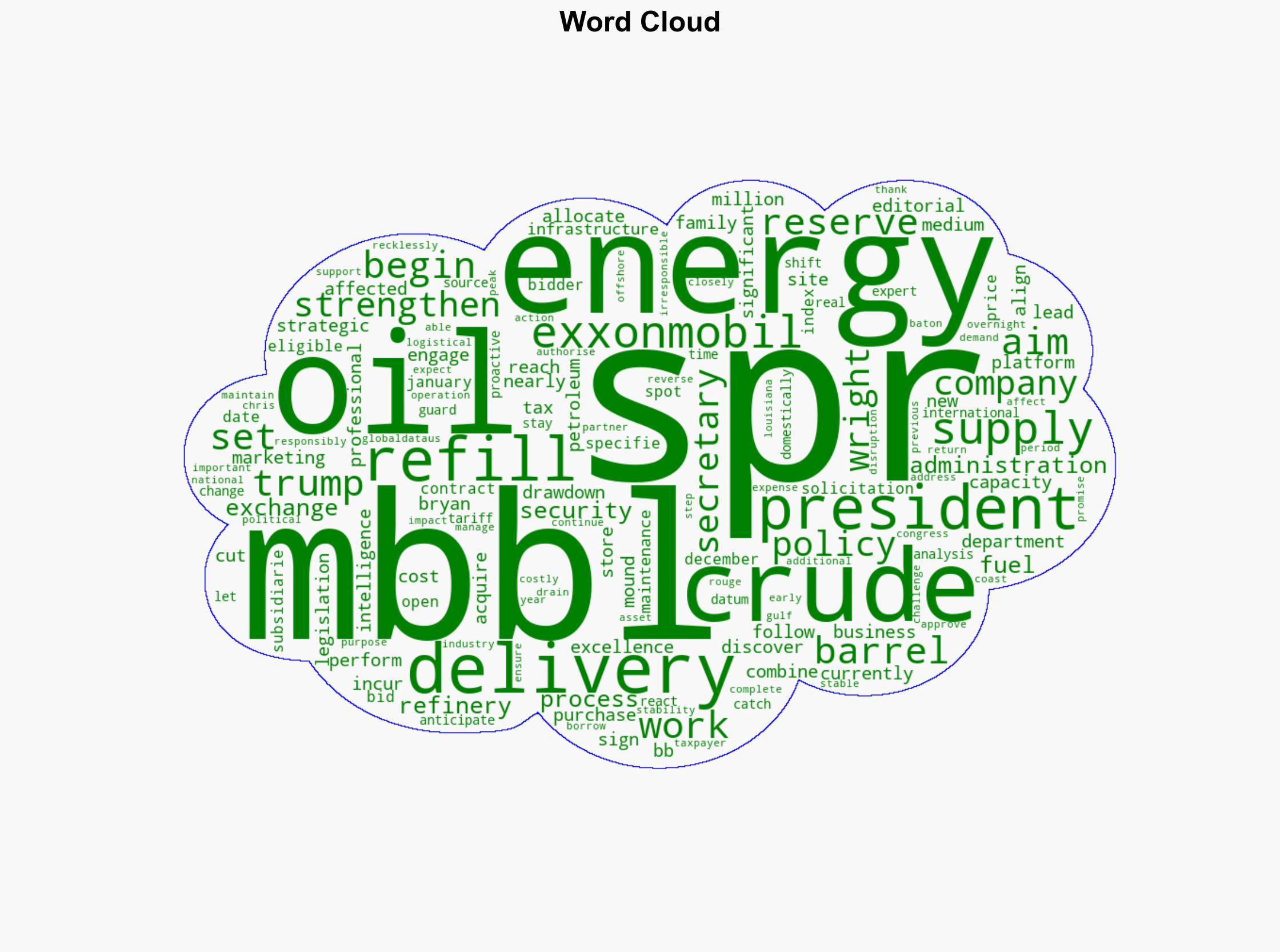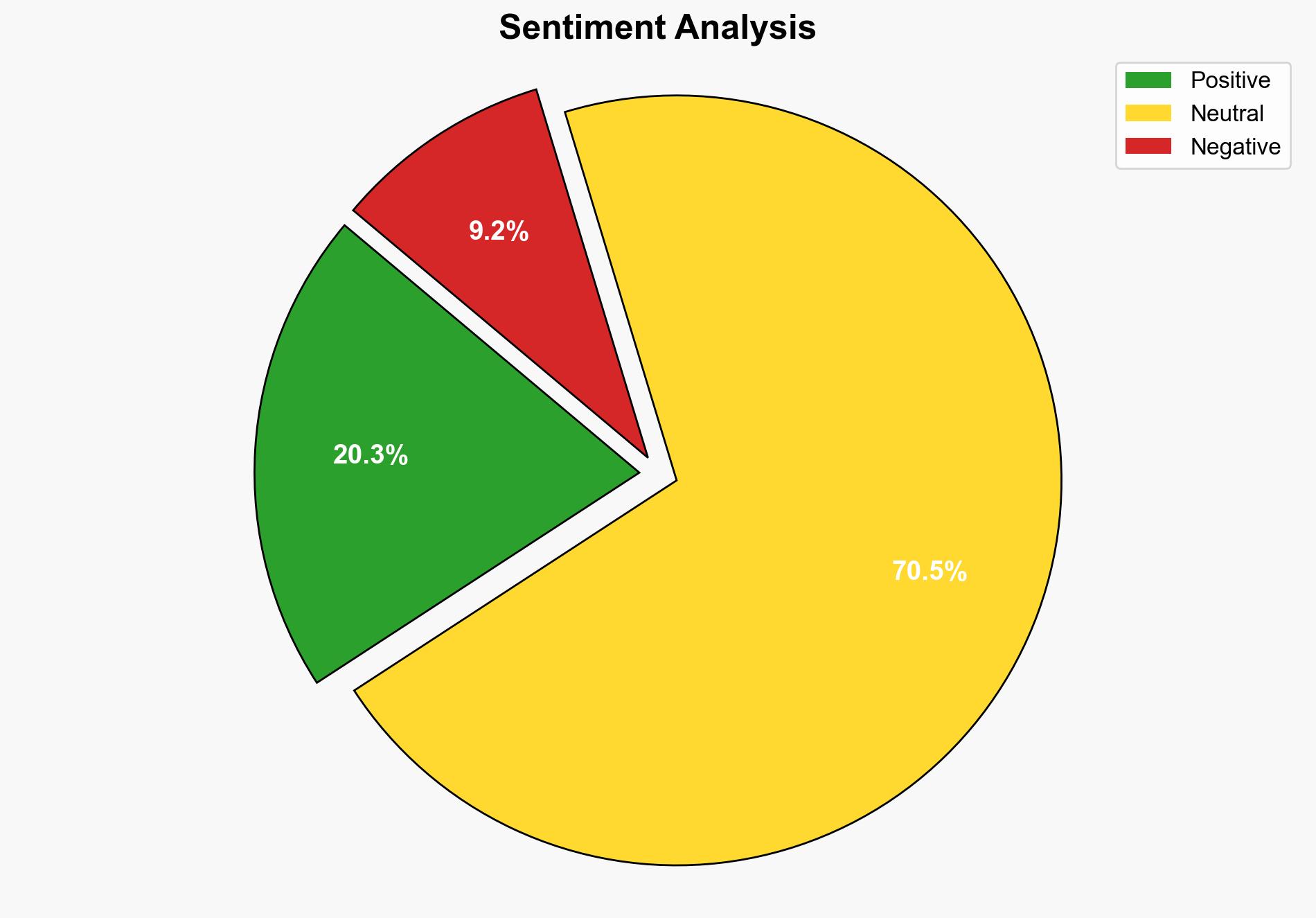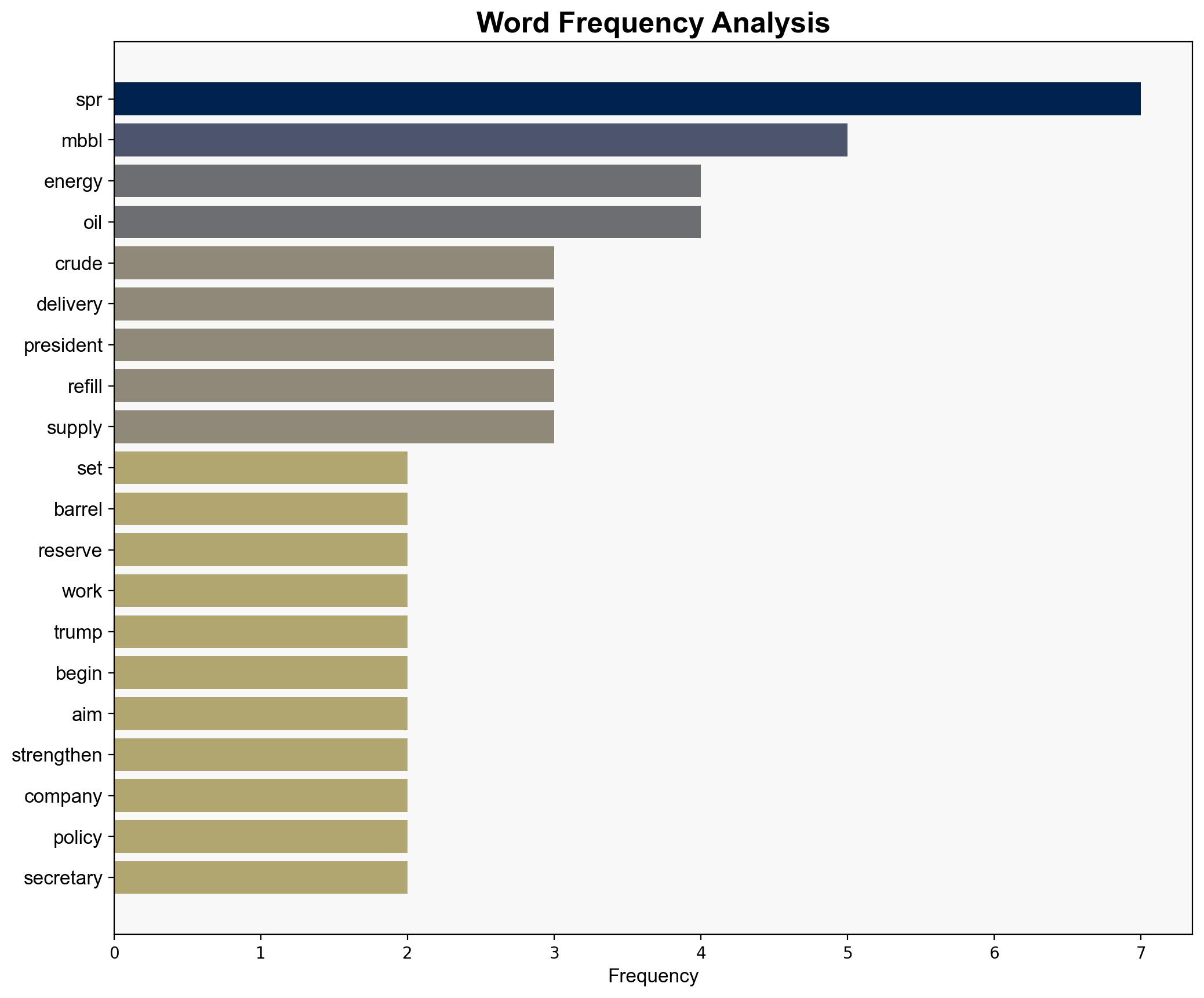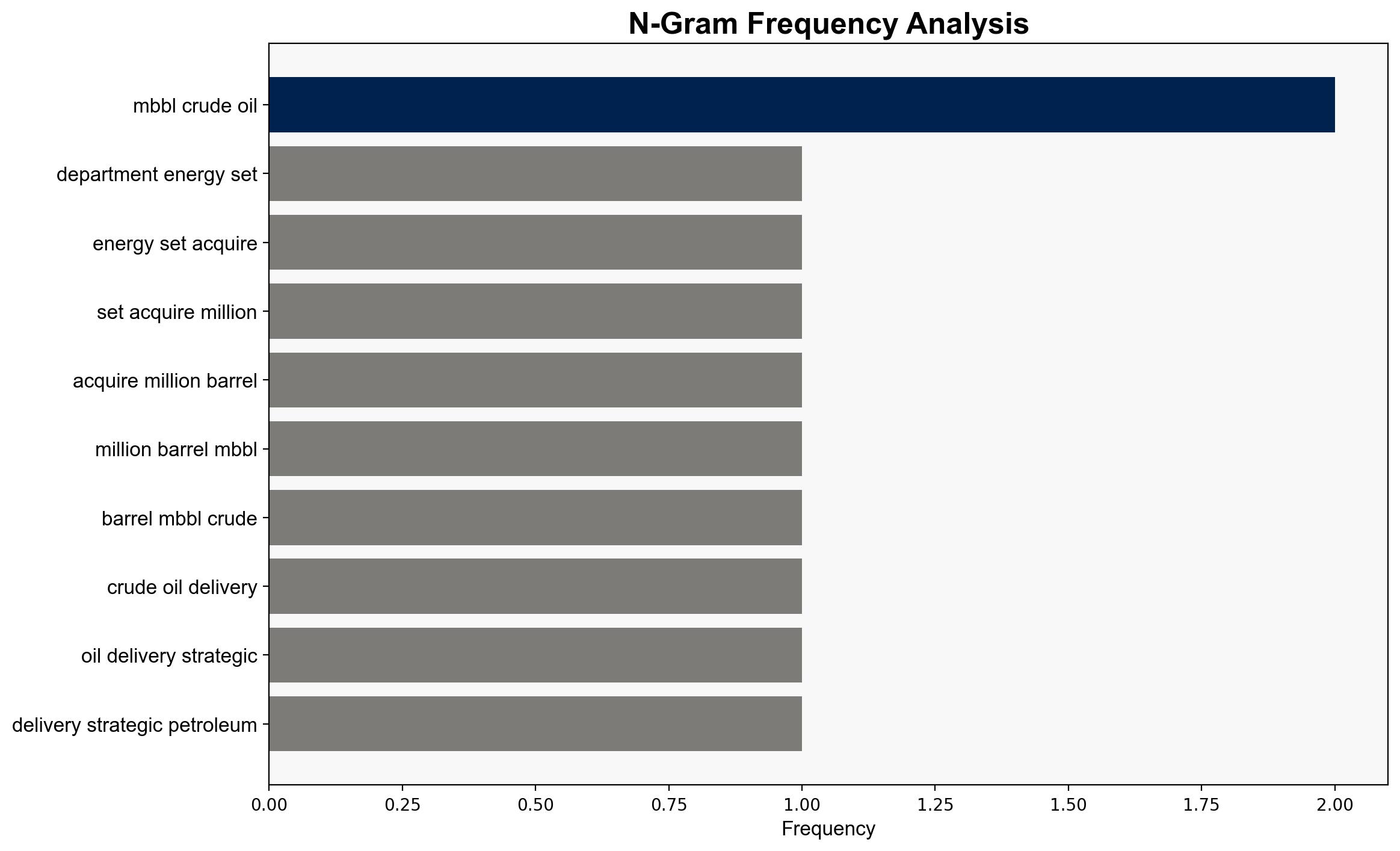DoE to procure 1mbbl of crude oil for Strategic Petroleum Reserve – Offshore Technology
Published on: 2025-10-22
Intelligence Report: DoE to procure 1mbbl of crude oil for Strategic Petroleum Reserve – Offshore Technology
1. BLUF (Bottom Line Up Front)
The Department of Energy’s (DoE) decision to procure 1 million barrels of crude oil for the Strategic Petroleum Reserve (SPR) is primarily aimed at strengthening national energy security. The most supported hypothesis is that this action is a strategic move to replenish reserves after previous drawdowns. Confidence level: Moderate. Recommended action: Monitor procurement and delivery processes for potential disruptions and ensure alignment with broader energy security strategies.
2. Competing Hypotheses
1. **Hypothesis A**: The procurement is a strategic initiative to replenish the SPR following significant drawdowns, ensuring energy security and stability in response to past policy decisions.
2. **Hypothesis B**: The procurement is primarily a political maneuver to align with recent legislative actions and demonstrate proactive energy management, potentially influenced by domestic and international political considerations.
Using ACH 2.0, Hypothesis A is better supported by the alignment with previous drawdowns and the stated goal of strengthening energy security. Hypothesis B lacks direct evidence but is plausible given the political context.
3. Key Assumptions and Red Flags
– **Assumptions**:
– The procurement is driven by genuine energy security concerns.
– The DoE has sufficient logistical capacity to manage the procurement and delivery effectively.
– **Red Flags**:
– Potential for political influence overshadowing strategic energy needs.
– Lack of detailed information on the procurement process and potential international reactions.
– **Blind Spots**:
– Possible underestimation of geopolitical reactions, especially from oil-exporting nations.
4. Implications and Strategic Risks
– **Economic**: Increased oil procurement could stabilize domestic oil prices but may also lead to international market fluctuations.
– **Geopolitical**: This move might provoke reactions from oil-exporting countries, potentially affecting diplomatic relations.
– **Psychological**: Public perception of energy security could improve, but skepticism about political motivations may persist.
5. Recommendations and Outlook
- Monitor the procurement process closely to ensure transparency and efficiency.
- Engage with international partners to mitigate potential geopolitical tensions.
- Scenario Projections:
- Best: Successful procurement strengthens energy security with minimal geopolitical fallout.
- Worst: Procurement leads to international tensions and domestic political backlash.
- Most Likely: Moderate success in procurement with manageable geopolitical and domestic impacts.
6. Key Individuals and Entities
– Chris Wright
– ExxonMobil
7. Thematic Tags
national security threats, energy security, geopolitical strategy, domestic policy





